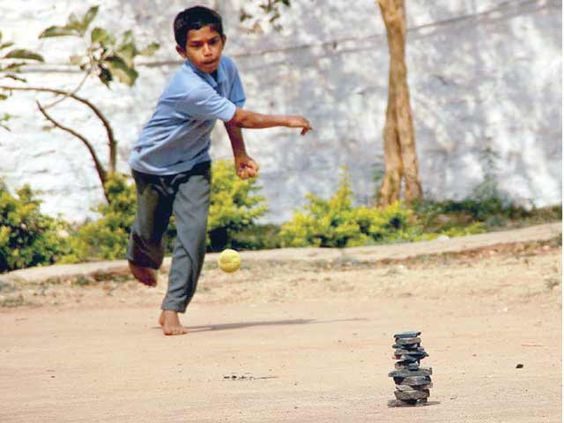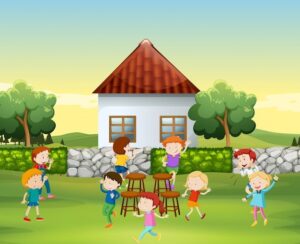How to Play Seven Stones | Indian Traditional Pittu/ Lagori Game

In India, we play a lot of different games. Some are popular, like cricket or football. But there are also lots of other traditional games that Indians love to play. One such game is Seven Stones (or Pittu/Lagori). It’s a simple game that anyone can play, and it’s a lot of fun! Seven Stones is one of the most popular games in India, and it can be enjoyed by all ages.
So, if you’re looking for something new, why not give Seven Stones a go? This traditional Indian game is a lot of fun, and it’s easy to learn. In this article, we’ll teach you how to play the game and give you tips on how to win. So read on and get ready to have some fun!
What are the Seven Stones/Pittu/Lagori Games?
Seven Stones is a game played with stones on a square board. The object of the game is to capture all of the opponent’s pieces by landing one’s pieces on their squares.
The game can be pretty simple, involving many strategic options and moves. However, learning how to play it in just a few minutes is possible. Different versions of the game vary in the number and type of pieces used, but the basic rules are always the same.
In Seven Stones/Pittu/Lagori Games, each player begins the game with seven stones placed on the central square of the board. The player with the most stones at the end of the game wins!
The History of the Seven Stones Game?
The (Seven Stones) game is an ancient game mentioned in the Hindu epic, the Mahabharata. It is said that Lord Krishna played this game with his friends 5000 years ago. The (Seven Stones) game is known by different names in different parts of India. In Maharashtra, it is called Lagori or Language, while in English, This name is called Seven Stone; in Karnataka, it is calledcka (hindi:लागूरी)(marathi:लागोरी) and Sidda (Kannada: ಸಿದ್ದ), in north side this game name called Pittu. The game is played with seven flat stones (or pieces of stone) of equal size.
What is the seven-stones game called in Hindi?
Seven Stones is a traditional game played in India. The game is also known as Pittu, Lagori, or Pala. In India,
Why is it called Seven Stones ( Pittu/ Lagori )Game?
There are many theories about the origin of the Seven Stones/Pittu/Lagori game. One famous story says it is descended from a Hindu religious game played by priests to test their skills. The game’s object is to move several stones around a board, trying to capture as many pieces of the other player as possible. The game evolved and became more complex, requiring players to strategize and plan. Today, Seven Stones/Pittu/Lagori is commonly played in India and other parts of South Asia as an addictive strategy game.
How many players are in the Seven Stones Game?
The Indian Traditional Pittu/ Lagori Game is an ancient and popular board game that can be played by two to seven players. The game is a simple but strategic board game that dates back over 2,000 years.
How to Play Seven Stones | Indian Traditional Pittu/ Lagori Game?
- The game of Lagori is very simple and is played by children of all ages. The only equipment needed is a small rubber ball and seven flat stones.
- The game’s object is to throw the ball at the pile of stones, knocking them over.
- Then, the person who threw the ball must pick up all the stones and stack them back on top of each other.
- The first person to stack all seven stones on top of each other wins the game.
- Lagori can be played with two people or more.
- If more than two people are playing, each player must take turns throwing the ball.
- The game can also be played with teams. In this case, each team must have one person throw the ball at the pile of stones, and then another team member must pick up all of the stones and stack them back on top of each other.
- The first team to stack all seven stones on each other wins the game. Lagori is a fun and easy game that can be enjoyed by people of all ages.
Lagori is an excellent game for kids because it teaches them teamwork and strategy. It can be played indoors or outdoors; all you need is a flat surface and some small rocks or stones.
Rules of the Lagori (Seven Stones) game
Lagori is a game of skill that is popular among children and adults. The game’s object is to stack seven stones on each other, with the player who manages to do so being declared the winner.
There are a few simple rules that must be followed to play Lagori. Firstly, each player must take turns throwing a small stone at the stack of rocks to knock them over. If successful, the player can then attempt to rebuild the stack.
If the player fails to knock over the stack, or if they cause any of the stones to fall off the table, they must pick up one of the stones and place it on top of the stack.
The first player to successfully stack all seven stones wins the game. Lagori is a fun and easy game that can be enjoyed by people of all ages.
What equipment is required to play Seven Stones Game?
Seven Stones is a popular traditional Indian game that can be played with just a few simple items. You will need a piece of flat ground, some stones, and someone to play against. The game usually starts with one player throwing a rock at another player’s feet.
If the stone lands on its edge, the player who threw it gets to take another turn. If the stone falls in the middle, both players take another turn. The game’s goal is to catch as many rocks as possible before your opponent does.
Conclusion.
The traditional game of seven stones is a popular Indian board game that can be played by two players. The game is also known as Pittu or Lagori. In this game, players capture the other player’s pieces by playing stones off the board. The game’s goal is to capture all of your opponent’s pieces.
Hey kids, how much did you like How to Play Seven Stones | Indian Traditional Pittu/ Lagori Game? Please share your view in the comment box. Also, please share this story with your friends on social media so they can also enjoy it, and for more such kids games, please bookmark storiespub.com.





Awesome one!!! Loved it !! I really liked this article .